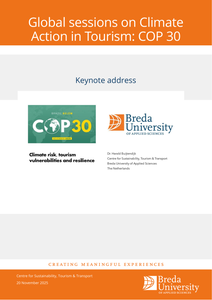DOCUMENT

In this article, Isaac argues that since 1948, Israel's control of water resources has been the result of military actions that forced between 700,000 and 800,000 Palestinians into exile and claimed the most fertile part of the disputed territory for the state. It thereby paved the way for subsequent military occupation. Isaac maintains that the Israeli occupation has violated the Palestinian right to the equitable and reasonable utilization of shared water resources. In his view, from the end of the 1967 war, Israel initiated its occupation of the territories of Palestine and quickly imposed military order with a view to achieving full control over land and water resources. To Isaac, these military orders served to dissolve the pre-1967 legal systems and which consisted of Ottoman, British, Jordanian (West Bank) and Egyptian (Gaza Strip) laws. This critical review article concentrates on the concept of justice tourism as a response to these assumed Israeli violations of Palestinian rights to equitable and reasonable utilization of shared water resources. The article sheds light on why and how justice tourism conceivably contributes to the Palestine host communities' transformation and hence to the development of higher level self-consciousness about their rights as "a sovereign nation".
MULTIFILE

Does real estate still have the value that it once had, or will the valuation of real estate change due to surprising products and services, innovative business models, different market strategies, innovative ways of organizing and managing in the (real estate) markets? Innovation revolves around good facilities in an attractive and stimulating environment. Take disruptive real estate. The driving force behind these developments are new technology, viability, organizing differently and managing, and these have a big impact on the valuation of real estate. Established names like Nokia, Kodak, Blockbuster, Oad, Free Record Shop, Hyves and V&D collapse, and others, like Hema, Shell, hotel chains and healthcare institutions are the least bothered by it. However, disruptive organizations like Amazon, Zalando, Uber, Tesla and its competitor Faraday Future, who wants to exceed Tesla in everything, clearly respond to viability in the environment, and this is determinative for competitive strength and thus impacts the current and future valuation of real estate. Blockchain – a distributed database that contains a growing list of data items and that is hardened against manipulation and counterfeiting - plays an important role in that. The notaries and brokers have already experienced this in the recent period, and it will continue to have an effect on real estate owners, financiers, users, builders, brokers, notaries and the cadastre. The real estate world finds itself at a tipping point of a transition: a dramatic and irreversible shift in (real estate) systems in society.
DOCUMENT
